Featured
Amit Majumder: leading Jumeirah Vittaveli’s constant evolution

In India, the early 2000’s were marked by an expansive growth in sectors such as banking and insurance. Several brilliant young minds shifted their careers to those fields, leaving behind traditional service industries such as tourism and hospitality.
It was true for Amit Majumder and his fellow students, too. Most of his colleagues that had started out in the hospitality industry with him left to pursue careers in banking and insurance. But Amit stayed and his resolve has been highly rewarded; with a career spanning more than 16 years, Amit has climbed up the ranks to become the General Manager at Jumeirah Vittaveli in the Maldives, one of the most renowned luxury resorts in this world famous island paradise.
Maldives Insider sits with Amit to speak about his career, Jumeirah Vittaveli’s evolution and his perception of the Maldives tourism industry.
It might seem like a short journey, but it has been a fantastic journey filled with lots of learning, experience and joy!
Maldives Insider: What made you join the tourism industry?
Amit Majumder: For my graduate studies, I enrolled in economics. But I thought I should do something more vocational for my post-graduate studies. That is why I chose to enrol in Hotel Management. I have always had a neck for cooking and had dreamed of becoming a chef. But being young, I lacked the kind of discipline needed to head a professional kitchen. So I moved to something close to that — food and beverage service.
I started right out of Hotel Management School in India when I was just 19 years old, joining Oberoi Hotels and Resorts. It was a fantastic experience. I learned more in my first job than what I had learned during my studies, and that influenced me so much that I never had the desire to change my career path after my first job in the industry, unlike many of my friends who left the hotel industry and chose different paths like banking, insurance and call centre postings, which were booming at the time in India.
MI: What was your career progress like after joining Oberoi?
AM: After two years with Oberoi, I joined Jumeirah for the first time in 2002 at Burj Al Arab Jumeirah and later moved on to Madinat Jumeirah as part of its opening team. I spent five years in Dubai before coming to the Maldives in 2007 as the Front Office Manager at Kanuhura Maldives (then known as One&Only Kanuhura). I then left the Maldives for Singapore to serve as the Front Office Manager and Rooms Division Manager at Mandarin Oriental.
After about four years in Singapore, it was like the stars just aligned, and I was back in the Maldives, this time rejoining the Jumeirah Group as the Resident Manager at Jumeirah Vittaveli. From there, I moved up the ranks, finally assuming the role of General Manager in August 2016.
It might seem like a short journey, but it has been a fantastic journey filled with lots of learning, experience and joy!
MI: How different is the Maldives from other places that you have worked at?
AM: It is absolutely different — even in the basics. In the Maldives we are not managing a hotel; rather, we are running a small city. We are ultimately responsible for not just the utilities like power and water, but essentially for the well-being of each and every guest that stays with us as well as of all our colleagues. We need to ensure that the staff are motivated and that they have good facilities in terms of accommodation, work environment and welfare. In other places, you do not really have to care about living conditions and leisure facilities of your team after they leave work. But here we have to be very conscious of that all the time.
On the other hand, although people say that things like procurement are especially difficult in a remote island location such as the Maldives, I find this part of the business actually quite easy because you can either get your goods from the local communities or import them through one of the many shipping companies with branch offices located in Male. The key here is to plan ahead and be aware of longer lead times when receiving goods by cargo ship.
The fact that I have spent most of my career in the Maldives speaks volumes. I have done city hotels and resorts in other countries, but the Maldives, and in particular this island, is very special to me.

A two-bedroom beach villa at Jumeirah Vittaveli. PHOTO/ JUMEIRAH
MI: What is your main focus area at Jumeirah Vittaveli?
AM: If you have access to enough capital, anyone can build beautiful properties anywhere in the world. But the core of any establishment remains the colleagues. Here at Jumeirah Vittaveli, we continuously focus on improving facilities and implementing engaging activities to keep our colleagues motivated, so that when they serve the guests they put in their best to provide a genuine hospitality experience. I often hear from our guests that one of the major differences between our resort and other hotels they have visited is the genuine warmth expressed by our colleagues – service does not appear as staged, but is felt like an experience with the right attitude and aptitude.
At the same time, there are many beautiful properties coming up around the world and in the Maldives as well. So we should always keep ours fresh through innovation and creativity while keeping true to our core values.
MI: What is being done to keep Jumeirah Vittaveli fresh?
AM: It is a never-ending process. We started fully operating in 2012 and here we are sitting in 2017, and every year we have added something or done something new. From 2014 onwards, we have been on a path of very vigorous and fantastic changes all around the resort. We have added an airport lounge, the Family Beach Villas, our new restaurant Swarna, and renovated our main restaurant.
This year, we finally unveiled something we have been working on for a while; the all-new five bedroom Royal Residence. I have studied all the large villa categories in the Maldives, and I can safely say that ours is quite unique.
MI: What’s the idea behind the Royal Residence?
AM: The idea behind the Royal Residence is to create a private space which is unique and opulent. I think we have achieved that. The best part was that everybody came together with ideas of what we could do. We have taken inspiration from not just our colleagues, but also from our guests. We constantly listened to our guests and understood what their expectations would be if they were staying in a place like that. This led to the inclusion of a dedicated restaurant, a separate professional kitchen, air-conditioned living and dining pavilion, and not only 1 but 2 private swimming pools, to name only a few of the many unique highlights of our Royal Residence.
The reception has been fantastic. I cannot reveal the revenue figures, but I can say that we have already made quite a big fraction of the amount we spent on construction and interior décor.

The Royal Residence at Jumeirah Vittaveli. PHOTO/ JUMEIRAH
MI: Can you highlight the CSR programmes and eco-friendly initiatives undertaken by the resort?
AM: For the third year in a row, we have achieved the Green Globe certification this year. A team from the Oceanographic Museum in Germany also constantly help us assess the quality of our house reef and advise us on what can be done to protect the corals.
We are trying to reduce plastic in every way possible. In 2013, we established a bottling plant on the island to decrease the amount of plastic bottles given to guests. But we realised that we still had to purchase a lot of plastic bottles for colleague consumption. So we have now expanded that initiative and distributed free reusable water bottles especially for our colleagues. New water dispensers have been installed so that colleagues have easy access to the fresh island made bottled water throughout the back of house area.
We have also replaced items like sugar sachets with cubes kept in enclosed jars. All our drinking straws will soon be replaced with stainless steel ones.
In terms of our CSR programme, we are working on bringing all of our CSR projects together under one umbrella in order to have a more focused approach. We have been working with the center for people with special needs in Maafushi and the orphanage in Villingili for a number of years. I have personally been there on several occasions. Just recently, we also visited the Autism Centre in Hulhumale and established a permanent collaboration with them.
We are also a partner of UNDP Maldives, and keep our doors open for any kind of vocational training programmes for students from local communities.

The Swarna restaurant at Jumeirah Vittaveli. PHOTO/ JUMEIRAH
MI: How do you see the growth and changes in the Maldives tourism industry?
AM: Maldives still is a huge attraction for people all around the world. It is on many people’s bucket list — they want to visit the Maldives at least once in their lifetime. However, those that come here with the intention of visiting just once often keep coming back. Very few places in the world can compare with what the Maldives has to offer from a nature’s perspective — the breathtaking views, the vibrant underwater world and the all-year round pleasant climate.
It is good for the economy that money is being pumped into the country through the tourism industry. We have not yet realised the full potential of tourism, and I think there is still a great potential for expansion in the industry, especially in terms of more airlifts resulting in more tourist influx into the country. More international flights are now coming in to the main airport as well as other domestic airports that are slowly being converted into international arrival and departure points. Additionally, the main airport is being expanded to offer more facilities and services for a larger number of travellers. This is all going to help.
I do not see the number of new hotels coming up as a threat – with increased entry points and facilities, there will be space for a large enough market to sustain the existing and any upcoming hotels. I believe that the whole infrastructure of the country that supports this industry will also move towards where the Maldives should be.
MI: What should be done to attract more tourists?
AM: Not just the government, but the whole industry should focus on new markets with the support of airlines, so that we can bring in more flights. Despite China being one of the most important source markets, there are very few direct flights from China. Another example; India, being very close to the Maldives and having an increased level of outbound travel over the past few years, can be another market to look at to increase air connectivity.
MI: How is Jumeirah Vittaveli being positioned to adapt to the new trends in the industry?
AM: Jumeirah itself is a relatively new, modern company. We have a set brand identity and brand vision, but we are not bound by age-old traditions. So we are always trying new and innovative things.
In terms of Jumeirah Vittaveli, we are constantly upgrading our property and refining our service. We do things differently while still keeping our core culturally connected. We will keep on developing our surroundings and coming up with creative ideas to maintain our position as a market leader.
We are already developing a new category of villas, and constantly adding new F&B venues. We are looking into setting up a new restaurant, which will be based completely on organic food. We are also building a wedding chapel for those who want to renew their vows or who just want to take excellent photographs. We have a very exciting project too, which started as joke; an ice skating ring. Whoever we talk to about it tells us, ‘Oh! You must be joking!’ But we are not joking. We are already building it.
Action
Sun Siyam Vilu Reef unveils expanded marine excursion portfolio

Sun Siyam Vilu Reef, part of the Sun Siyam Privé Collection, has introduced an expanded portfolio of water-based experiences designed to showcase the natural environment and marine life of the surrounding atolls. The enhanced programme combines exploration, activity and moments of calm, offering guests new ways to experience the Maldives through curated ocean journeys and personalised excursions.
Building on established activities such as Jet Car rides, SeaBob adventures and windsurfing, the resort has expanded its watersports offering to include private speedboat journeys and bespoke marine experiences. These additions are tailored for small groups seeking intimate and meaningful encounters with the ocean.
Available daily from the resort’s Watersports Centre, the new private speedboat excursions provide a personalised way to explore the hidden marine sites of Dhaalu Atoll. Designed for one to four guests, each journey offers flexibility and individual attention. Guests may choose from four-hour, five-hour or full-day itineraries, all of which include a freshly prepared barbecue lunch. From coral gardens to secluded sandbanks, the excursions highlight the region’s diverse marine landscapes.
The programme’s centrepiece is the Full Day Adventure Trip, which offers an extended exploration of key marine locations. Highlights include the Coral Garden, known for its biodiversity and reef formations; Turtle Point, where sea turtles are frequently sighted; and Nurse Shark Point, which provides opportunities to observe nurse sharks in their natural environment. The experience concludes with a beachside lunch on a private sandbank, set against uninterrupted views of the Indian Ocean.
For guests seeking a balance between activity and relaxation, the Waves of Adventure and Calmness experience combines a private two-hour snorkelling safari or Jet Ski safari with a full-body massage at the resort. The programme is designed to transition smoothly from ocean exploration to restorative island time, reflecting the relaxed pace that characterises Sun Siyam Vilu Reef.
As part of the Sun Siyam Privé Collection, Sun Siyam Vilu Reef continues to focus on personalised service and experiences rooted in the natural setting of the Maldives. Through its expanded watersports offering, the resort invites guests to engage with the marine environment while enjoying a sense of privacy, discovery and connection to the Maldivian seascape.
Featured
Yoko Kawaguchi to lead holistic wellness residency at Vakkaru Maldives

Vakkaru Maldives has announced the residency of acclaimed holistic practitioner Yoko Kawaguchi at Merana Spa, taking place from 17 March to 30 April 2026. The residency forms part of the resort’s ongoing focus on wellness, restoration and mindful living.
Grounded in Japanese healing traditions, Kawaguchi’s therapeutic philosophy centres on personalised care designed to calm the nervous system, release emotional tension and support the body’s natural restorative functions. Her integrative approach combines auriculotherapy (ear reflexology), aromatherapy, Reiki energy healing and targeted massage techniques to create treatments tailored to individual needs.
Guests may select from a range of core therapies offered during the residency. Highlights include the Tranquil Mind Ritual, which blends scalp massage, ear reflexology and energy work to ease tension and encourage emotional clarity. The Aroma Reiki Healing Touch treatment combines aromatherapy back massage with carefully selected essential oils and Usui Reiki to address both physical and emotional blockages. Auriculotherapy sessions focus on stimulating reflex points in the ears to support hormonal balance, immunity, nervous system regulation and overall wellbeing, with optional ear seeds available to extend the benefits beyond the treatment.
Alongside individual sessions, Kawaguchi will offer complimentary consultations and a programme of group wellness experiences. These include guided Reiki self-healing meditation and ear stretching massage sessions designed to promote relaxation and mental clarity, providing guests with simple techniques to support their wellbeing during and after their stay.
Hosted within the serene surroundings of Merana Spa, the residency offers guests an opportunity to pause, reset and engage in a deeper wellness journey, aligned with Vakkaru Maldives’ philosophy of understated luxury and holistic balance.
Featured
Ancient banyan tree anchors spiritual experiences at Machchafushi Island Resort
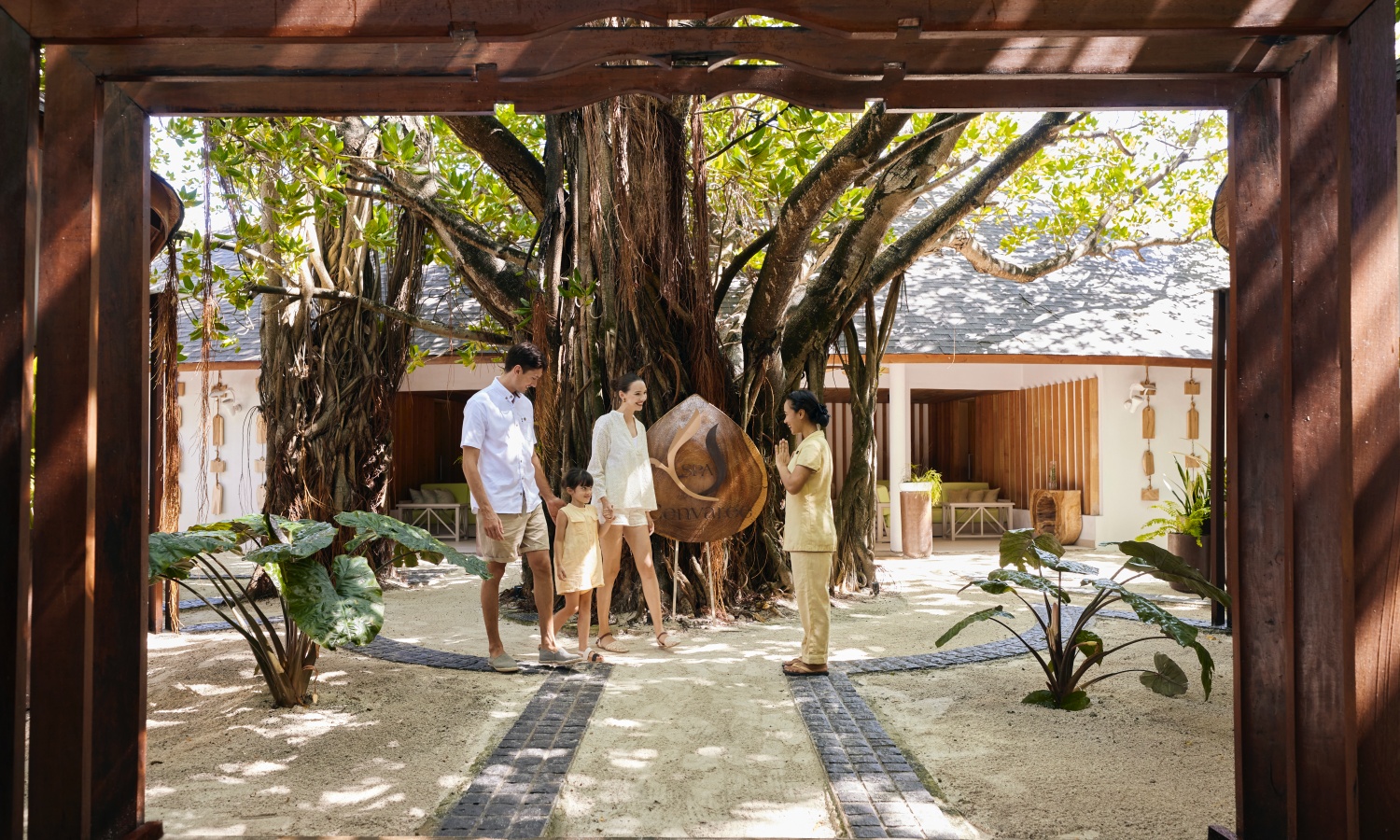
Machchafushi Island Resort & Spa, part of The Centara Collection, offers an island experience shaped by the rhythm of the ocean in the heart of South Ari Atoll. While the resort is widely recognised for its celebrated dive sites, award-winning house reef and rich marine life, another presence quietly anchors the spirit of the island.
Within the peaceful grounds of SPA Cenvaree stands a centuries-old banyan tree known locally as the Ummeedhu Tree, meaning Wish Fulfilment. With its expansive canopy and cascading aerial roots, the tree is regarded as more than a natural landmark. It is a symbol of continuity and reflection, standing as a silent witness to the island’s past and present.
Long before the island became a resort destination, the banyan tree stood rooted in the sands of Machchafushi. Today, the resort honours it as the spiritual heart of the island, inviting guests to pause beneath its branches and engage in moments of reflection and reconnection.
This connection is expressed through the Sacred Thread Ceremony, a contemplative ritual designed to offer guests a personal and meaningful experience. The ceremony begins with a quiet walk through the spa gardens, encouraging stillness and intention. Guests select a delicate golden leaf to represent a personal wish—whether for love, wellbeing, success, abundance or inner peace—and hold it alongside a wish card while visualising that intention fulfilled. The golden leaf is then tied to the banyan’s ancient branches, symbolising the offering of the wish to the tree’s enduring presence. The leaf remains there, carrying the quiet energy of the intention until the guest’s return.
Beyond the banyan, the island continues its natural rhythm. The surrounding waters form part of one of the Maldives’ most significant marine environments, known for year-round whale shark encounters and an extensive house reef that stretches beyond the shoreline. Yet amid the movement of the sea and the vibrancy of coral life, it is often the stillness beneath the banyan tree that leaves the most lasting impression.
Sustainability and heritage are integral to life on Machchafushi Island. Located within the South Ari Marine Protected Area, the island is committed to safeguarding both its marine ecosystems and its cultural identity. The banyan tree stands as a reminder that preservation extends beyond the natural environment to include traditions, stories and the deeper connections between people and place.
At Machchafushi Island Resort & Spa, each day unfolds with moments shaped by nature and intention. From golden sunrises over the lagoon to wishes entrusted to ancient branches, experiences on the island are designed not only to be remembered, but to take root.
-
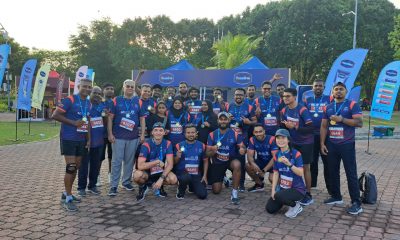
 Action1 week ago
Action1 week agoBestbuy Maldives supports health, wellness as Main Sponsor of MNU Marathon 2026
-

 Cooking1 week ago
Cooking1 week agoMaagiri Hotel invites guests to celebrate Ramadan with daily Iftar
-
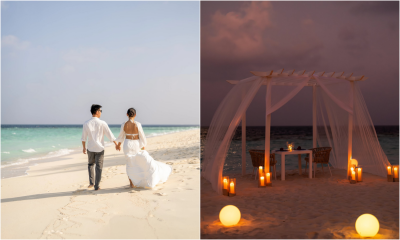
 Love1 week ago
Love1 week agoRomance in nature: Valentine’s week at Eri Maldives
-
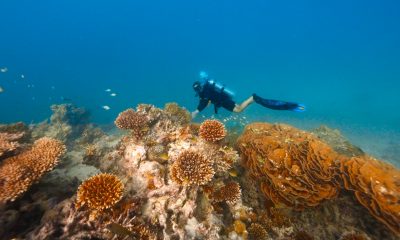
 News1 week ago
News1 week agoVentive Hospitality aligns Maldives portfolio with Green Fins marine sustainability platform
-
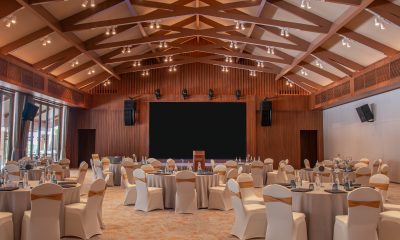
 Business1 week ago
Business1 week agoFeydhoo Hall opens at dusitD2 Feydhoo Maldives as new event space
-

 News6 days ago
News6 days agoThe Ritz-Carlton Maldives, Fari Islands launches conservation programme for environmental observances
-
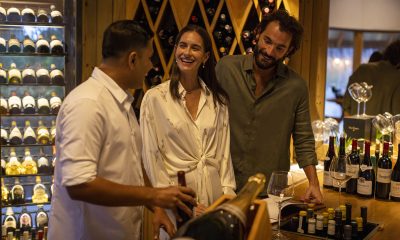
 Drink1 week ago
Drink1 week agoProvence comes to Maldives with Château Minuty dinner at Milaidhoo Maldives
-
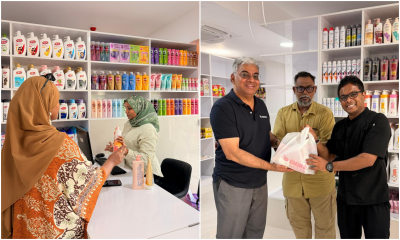
 Business1 week ago
Business1 week agoBBM expands retail presence with new Hulhumalé outlet















